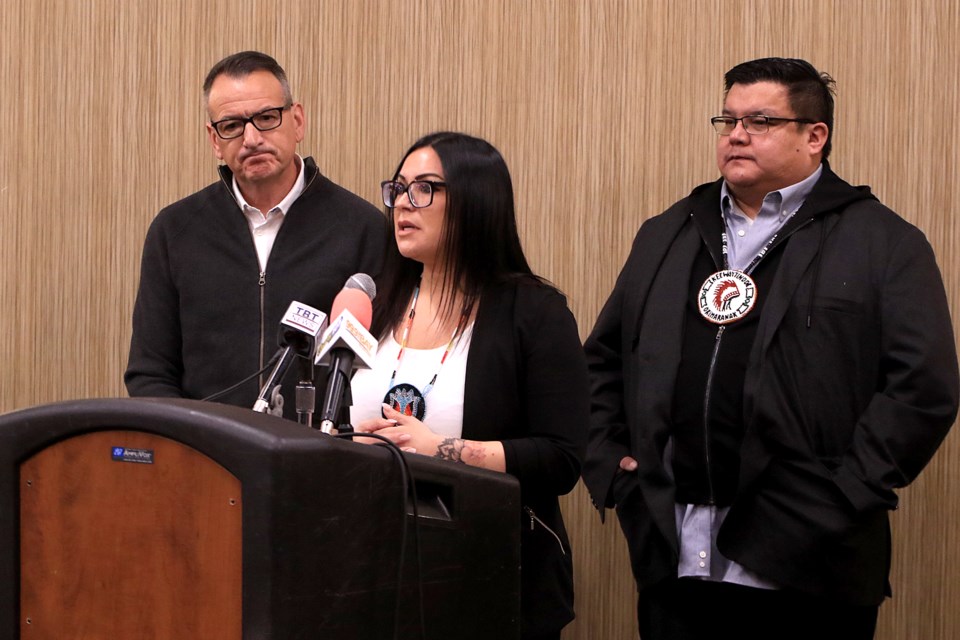THUNDER BAY – Tragedy continues to strike First Nations across Ontario’s North.
Since Dec. 18, Keewaytinook Okimakanak’s NAN Hope program has responded to a growing number of crises, including four substance use poisonings that led to deaths, four sudden or unexpected deaths, six suicides involving people under 30 including three 12-year-olds, one confirmed homicide, three missing persons, a motor vehicle collision that left one person dead and one fatal house fire.
That’s in the last seven weeks alone.
Armanda Parkinson, KO’s director of health, the organization that provides the community-driven NAN Hope program, said she’s seen a significant rise in crises in Nishnawbe Aski Nation communities over the past seven or eight years.
“The crisis response is essential to our remote communities, especially. NAN Hope is a supplementary service, so without there being more resources, more infrastructure and people in the communities to support some of those allied professionals, there’s always going to be an increase in crises.”
The province on Monday announced more than $2.6 million in spending to help alleviate the enormity of the mental health crises, including $1 million for KO, $623,500 for NAN mental health supports in First Nation schools located in Thunder Bay - a response to the Seven Youth Inquest, and $500,000 for NAN to purchase vehicles to further enable mobile crisis response teams.
The money is important, especially in the moment, but Parkinson said the provincial and federal governments can still do more.
“We definitely need a commitment for ongoing funding. This funding here today is an amazing announcement and we greatly appreciate the support, but definitely having an agreement where we have continued, lasting funding, is when we’re able to build programs and have continued support for our people in NAN territory,” Parkinson said.
Having boots on the ground in the community is also important, she added.
The Minister of Indigenous Services, Greg Rickford, said there are other medium- and long-term resources in the works, but it was important to address the current issues. Discussions with NAN leadership will continue, Rickford promised.
“These resources were identified as recently as a month or so ago. Budgets are wrapping up and we were looking across ministries to try to understand what resources could be targeted to address some of the acute challenges that some NAN communities are facing and NAN itself, in terms of the capacity,” said Rickford, who was hoping weather would permit him on Monday to fly to Eabametoong First Nation, a community whose school burnt to the ground last month.
Associate Minister of Mental Health and Addictions Michael Tibolo was also on hand and said the province is working directly with Indigenous leadership to determine what needs are the most pressing at the present time in order to fill as many of the gaps as possible.
“One of the things we’re working on is developing youth wellness hubs around the province, but also specifically in Indigenous communities,” Tibolo said, adding they’ve opened 400 new treatment beds, providing 7,000 treatment spots around Ontario, 54 per cent of which are in Northern Ontario.
The goal is to provide services as close to home as possible, while reducing stress on larger centres like Toronto and Thunder Bay.
“We’re working with Indigenous communities, collaborating to build a system that’s based on their needs, specifically taking into consideration things like land-based healing, water-based healing, to ensure the services being provided are culturally appropriate.”
The money supports Ontario’s Indigenous healing and wellness strategy.
